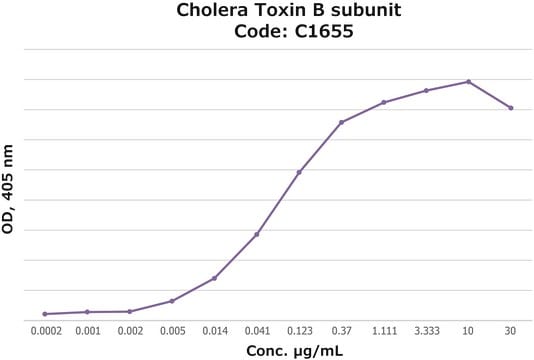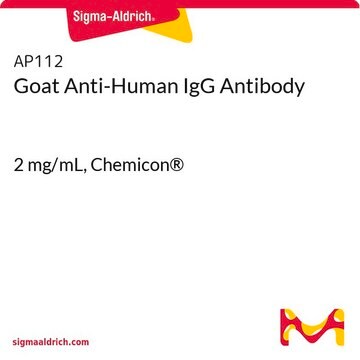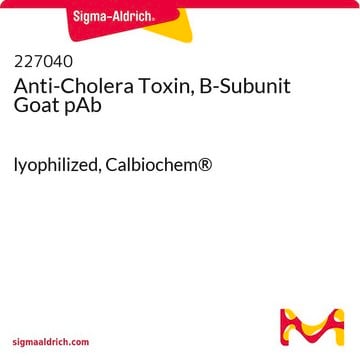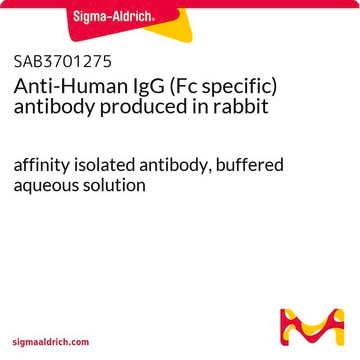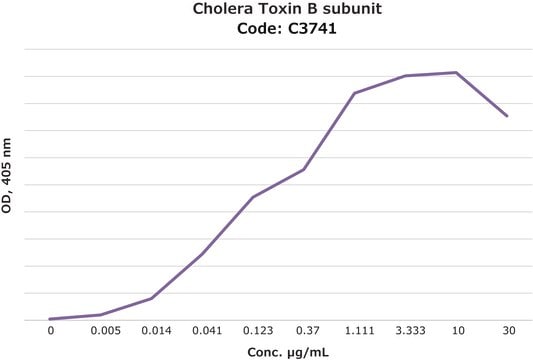SAB4200844
Anti-Cholera toxin, B Subunit (CTxB) antibody, Mouse monoclonal
clone CTxB-24, purified from hybridoma cell culture
Synonym(s):
Anti-toxB
About This Item
Recommended Products
antibody form
purified from hybridoma cell culture
antibody product type
primary antibodies
clone
CTxB-24, monoclonal
description
Research area: Microbiome
species reactivity
Vibrio cholerae
packaging
antibody small pack of 25 μL
concentration
~1 mg/mL
technique(s)
immunoblotting: 1-2 μg/mL using His-tagged recombinant Cholera Toxin B subunit
isotype
IgG1
UniProt accession no.
shipped in
dry ice
storage temp.
−20°C
target post-translational modification
unmodified
Related Categories
General description
Specificity
Immunogen
Application
Biochem/physiol Actions
Physical form
Storage and Stability
Disclaimer
Not finding the right product?
Try our Product Selector Tool.
Storage Class Code
10 - Combustible liquids
WGK
WGK 1
Flash Point(F)
Not applicable
Flash Point(C)
Not applicable
Choose from one of the most recent versions:
Certificates of Analysis (COA)
Don't see the Right Version?
If you require a particular version, you can look up a specific certificate by the Lot or Batch number.
Already Own This Product?
Find documentation for the products that you have recently purchased in the Document Library.
Our team of scientists has experience in all areas of research including Life Science, Material Science, Chemical Synthesis, Chromatography, Analytical and many others.
Contact Technical Service
